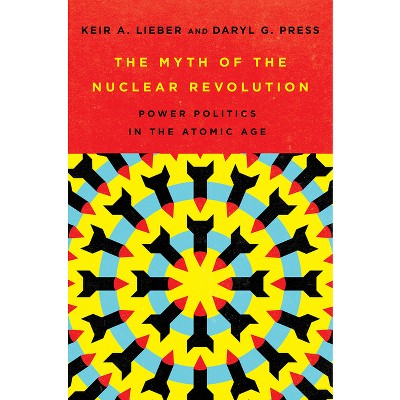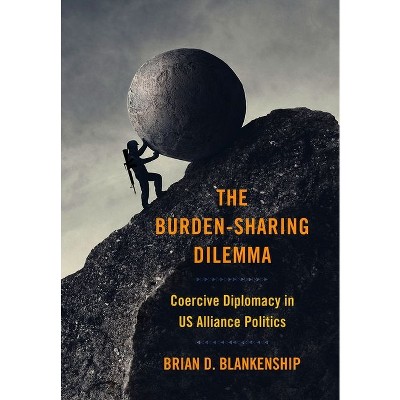Sponsored

The Remote Revolution - (Cornell Studies in Security Affairs) by Erik Lin-Greenberg (Hardcover)
In Stock
Sponsored
About this item
Highlights
- In The Remote Revolution Erik Lin-Greenberg shows that drones are rewriting the rules of international security--but not in ways one would expect.
- About the Author: Erik Lin-Greenberg is Associate Professor of Political Science at the Massachusetts Institute of Technology.
- 252 Pages
- Political Science, Security (National & International)
- Series Name: Cornell Studies in Security Affairs
Description
About the Book
"The book introduces and tests the logic of the remote revolution, a significant shift in how states compete on the international stage that is brought about by technologies-like drones-that create a world where confrontations between states are more frequent, yet generally remain low in intensity"-- Provided by publisher.Book Synopsis
In The Remote Revolution Erik Lin-Greenberg shows that drones are rewriting the rules of international security--but not in ways one would expect.
Emerging technologies like drones are often believed to increase the likelihood of crises and war. By lowering the potential risks and human costs of military operations, they encourage decision-makers to deploy military force. Yet as Lin-Greenberg contends, operations involving drones are in fact less likely to evolve into broader, more intense conflicts than similar operations involving traditionally crewed assets. Even as drones increase the frequency of conflict, the decreased costs of their operations reduces the likelihood of conflict escalation.
Leveraging diverse types of evidence from original wargames, survey experiments, and cases of US and Israeli drone operations, Lin-Greenberg explores how drone operations lower risks of escalation. First, they enable states to gather more or better intelligence that may avert or reduce the chances of high-stakes conflict. Second, drone attacks are less likely to affront a target state's honor and therefore less likely to provoke aggressive responses. Lastly, leaders are less likely to take escalatory actions when drones are attacked than they are with incidents involving inhabited assets.
Lin-Greenberg's findings prove conclusively that drones are far less destabilizing than commonly argued. Drones add rungs to the proverbial "escalation ladder" and, in doing so, have brought about a fundamental change--a revolution--in the character of statecraft. With the use of unmanned technologies only set to grow in coming times, The Remote Revolution is critical reading about their possibilities and politics.
About the Author
Erik Lin-Greenberg is Associate Professor of Political Science at the Massachusetts Institute of Technology.
Shipping details
Return details
Trending Non-Fiction






Discover more options





